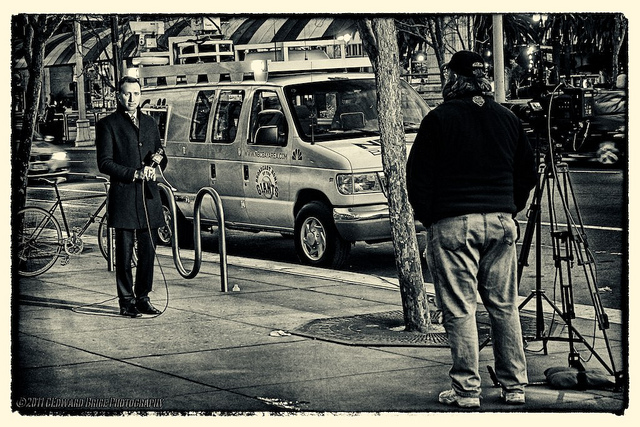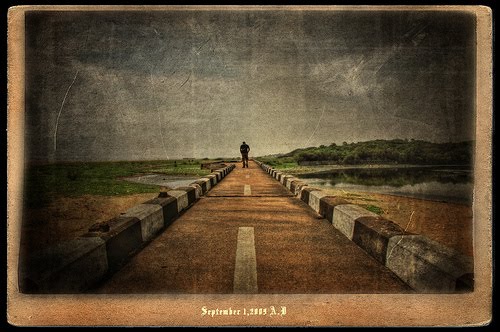
Ever wondered what the value of a book is?
Jeff Posey, project manager for Lucky Bat Books, tells us this in his post,
What’s Your Novel Worth? NPV and Cash Flow. Not only that, he gives us the
Excel spreadsheet he used so you can do it for yourself.
When Jeff talks about how much a novel is worth he's talking about its NPV or Net Percent Value. Here's what the NPV tells you:
... the NPV tells you the present monetary value of your intellectual asset if it generates the expected cash flow over the next forty years. It emphasizes the value of long-term steady flows of small amounts of cash, and also helps quantify the value of your time investment (you only have to write a novel once for it to earn income for forty years or more).
Clear as mud? Let's look at a few examples:
Example 1: The Casual Writer
Let's say you don't want to make your living from writing but you'd like to make enough to pay for the lattes you buy while you write.
You've published a novel and you plan on publishing another one every five years.
Number of books published: 1
Royalties per book per month: $15
Number of new books produced per year: 1/5
Money spent publishing each book: $0
Each new book boosts sales by: 15%
Estimated net monthly cash flow:
*- after 2 years: $3
- after 3 years: $10
- after 5 years: $34
- after 10 years: $174
Not bad. You might even be able to afford biscotti!
* These numbers are from Jeff's post, but when I ran them myself using his spreadsheet here's what came up:
*- after 2 years: $34
- after 3 years: $56
- after 5 years: $112
- after 10 years: $335
Example 2: The Professional Writer
You want your writing to be your main source of income.
Number of books published: 5
Royalties per book per month: $50
Number of new books produced per year: 2
Money spent publishing each book: $2,500
Each new book boosts sales by: 5%
Estimated net monthly cash flow:
- after 2 years: - $198
- after 3 years: - $70
- after 5 years: $780
- after 10 years: $8,224
Example 3: The Seasoned Writer
You've been doing this a while, your books sell well, and each new book helps the rest of your book sell even better.
Number of books published: 12
Royalties per book per month: $150
Number of new books produced per year: 3
Money spent publishing each book: $5,000
Each new book boosts sales by: 3%
Estimated net monthly cash flow:
- after 2 years: $1,753
- after 3 years: $3,710
- after 5 years: $10,371
- after 10 years: $50,414
Example: The Lone Gunman
I have a problem with using Jeff's calculations for real world concerns such as: When can I quit my job and make writing my full time profession?
Let's say you write one book, publish it, win the lottery, travel to Europe and forget all about writing. Here's what Jeff's spreadsheet told me.
Number of books published: 1
Royalties per book per month: $10
Number of new books produced per year:0
Money spent publishing each book: $0
Each new book boosts sales by: 0%
Estimated net monthly cash flow:
- after 2 years: $20
- after 3 years: $30
- after 5 years: $50
- after 10 years: $100
That seems wrong. If I only published one book and then, at least as far as my readers were concerned, disappeared off the face of the earth, I think it is
much more plausible that, after 10 years, I'd be lucky if I sold $2 a month.
Yes, absolutely, if a writer keeps writing, keeps publishing, keeps blogging, then her backlist books are going to be much more visible and I could see sales staying strong even after 10 years. But whether they will increase, and whether they increase exponentially, is another question.
So, with this in mind let's redo Example 2. Instead of assuming a book will sell progressively more, let's assume that the sales will stay constant.
Example: The Part Time Writer
Number of books published: 5
Royalties per book per month: $50
Number of new books produced per year: 2
Money spent publishing each book: $2,500
Each new book boosts sales by: 0%
Year 1:
5 books for sale so $50 * 5 = $250 per month.
Net gain: $250 per month.
Year 2:
2 new books published ($2,500/12=208) * 2 = $416 per month
7 books for sale so $50 * 7 = $350 per month
Net gain: - $66 per month.
Year 3:
2 new books published = - $416 per month
9 books for sale so $50 * 9 = $450 per month
Net gain: $34 per month
Year 4:
2 new books published = - $416 per month
11 books for sale so $50 * 11 = $550 per month
Net gain: $134 per month
Year 5:
2 new books published = - $416 per month
13 books for sale so $50 * 13 = $650 per month
Net gain: $234 per month
Year 6:
2 new books published = - $416 per month
15 books for sale so $50 * 15 = $750 per month
Net gain: $334 per month
Year 7:
2 new books published = - $416 per month
17 books for sale so $50 * 17 = $850 per month
Net gain: $434 per month
Year 8:
2 new books published = - $416 per month
19 books for sale so $50 * 19 = $950 per month
Net gain: $534 per month
Year 9:
2 new books published = - $416 per month
21 books for sale so $50 * 21 = $1050 per month
Net gain: $634 per month
So, after 9 years, assuming her books keep selling, on average, $50 per month, this writer will earn about $1,000 per month.
But what if one has to pay (as many do) $2,000 a month for health insurance then $1,000 a month is a drop in the bucket.
How many books would a writer have to have on the market if they wanted to make $3,000 a month ($36,000 a year)
Let's approach this from the other end: How many books would a writer have to have on the market if he wanted to make $3,000 a month ($36,000 a year) and each book brought in $100 a month?
The answer: 30 books. Stretched out over 5 years that's 6 books a year or one new book every two months.
A highly motivated person could probably do that. Keep in mind, though, that once you have the books on sale they keep selling at the same rate so at the end of five years you can ease back a bit. Or not.
Word count
How many words per year would one have to write to produce 6, 80,000 word, books? Answer: 480,000 words.
If instead of writing an 80,000 word book one wrote, say, a 40,000 word novella, 6 books would only equal 240,000 words which is, I think, completely doable. 240,000 words is about 4,600 words a week or about 650 words a day.
Keep in mind that
Kris Rusch writes as many as 1 million words a year! That means she writes, on average, 3,000 words a day and could complete approximately 24 40,000 word novellas in a year.
Also, keep in mind that books in a series can be bundled together and sold. To read more about this idea take a look at Dean Wesley Smith's post on the idea of a
magic bakery.
If the thought of writing 24 novellas a year has left you a bit shaky, remind yourself that in my scenario you only need to write 4,600 words a week or about 650 words a day. Now get a nice hot cup of tea or coffee, give yourself a (short) pep talk, and start writing!
The bear knows you can do it. :-)
By the way, there's more discussion of Jeff Posey's post over at
Dean Wesley Smith's blog and at
The Passive Voice Blog.
Other articles you might like:
-
Advice For New Writers
-
25 Tips For Writing Great Sex Scenes
-
Book Design: What NOT To Do
Photo credit: "
New Forest Foal" by
StuartWebster under
Creative Commons Attribution 2.0.
















